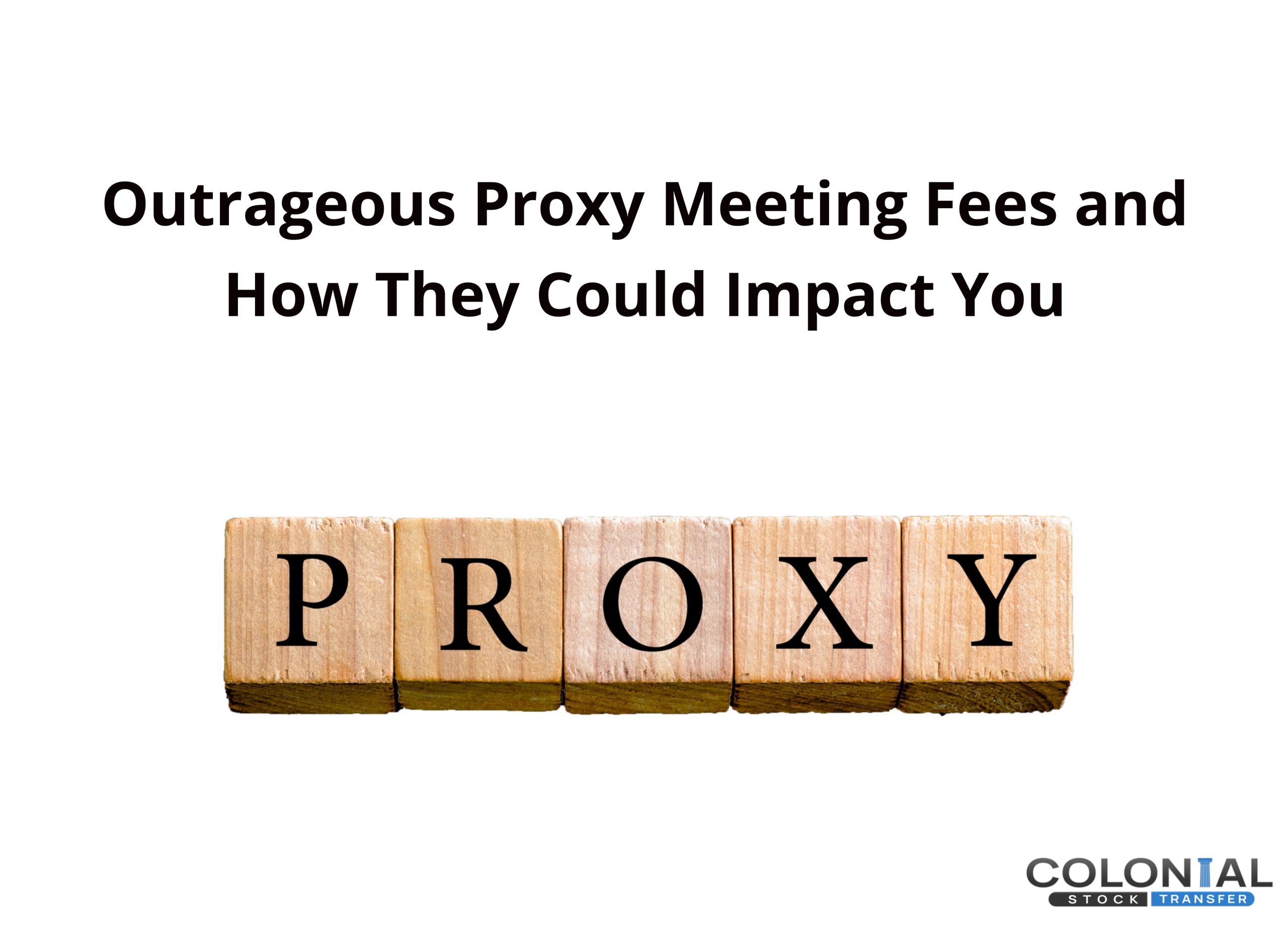
It is often said that there is a cost to doing business. Proxy meeting fees have emerged as such a cost in the context of the business of investing your hard-earned dollars. These unique fees are garnering more attention as time progresses as they are arguably egregiously excessive and even somewhat punitive. Let’s take a closer look at what proxy meeting fees are all about and why every public company should be aware of them.
What Does Proxy Mean in Finance?
Proxy statements are sent to those who own shares in publicly traded companies and funds. These statements/cards are transmitted with other paperwork, meaning investors often lose track of them in the shuffle. In the context of finance, the word “proxy” indicates the written authorization for action in place of another. Shareholders of publicly traded securities are empowered to vote on specific changes of the business. The proxy allows such shareholders to vote yay or nay on specific actions and also in regard to election board member approval/disapproval. Unfortunately, large broker and broker proxy handler fees are tied to the proxy that the company must pay.
What are Proxy Rules?
The SEC has specific proxy rules that publicly traded companies must comply with at the time when management provides shareholders with proposals. The rules state the publicly traded company is required to provide specific disclosures within the proxy statement referenced above to all shareholders when soliciting authorization to vote the shares of those investors. An information statement must be provided if shareholders are to take action yet management fails to solicit proxies.
Proxy rules also mandate the publicly traded company transmit a yearly report to all shareholders voting for directors. These nuanced rules even extend to governing when the business is to provide investors with shareholder lists and when a proposal form is to be included in the information statement/proxy statement.
How Proxy Meeting Fees Could Impact You
On the surface, proxy meeting fees appear to be somewhat of a necessary evil. However, these fees are climbing as time progresses. The purpose of such proxy fees is to compensate broker member firms for the inherent expense of distributing the issuer voting materials to investors. The broker-dealer acts on behalf of the shareholder yet this representation comes at a price, at the expense of the company.
Those who pay close attention to proxy meeting fees are adamant they are increasing without sufficient justification. Perform an in-depth analysis of proxy meeting fees and you will also agree these fees are becoming burdensome. The spike in proxy meeting fees stems from the rise in small retail investor accounts in which infinite trades can be made without broker commissions. A growing number of retail investors hold a relatively small number of shares in large publicly traded companies. This democratization of the stock market has even extended to the point that fractional shares are available to retail investors.
A growing number of everyday people now own a small piece of the economic means of production through shareholder capitalism. At first glance, this appears to be a net positive for society yet the downside is ever-increasing proxy meeting fees that show no sign of slowing down. In fact, one company we know with 100,000+ Robinhood holders had a $200,000 proxy bill.
Proxy meeting fees have expanded to cover:
- Mailing expenses
- Incentive fees
- Supplemental intermediary fees
- Fees for obtaining information pertaining to non-objecting shareholders
There are even additional fees tacked on for the transmission of notice and access materials as well as enhanced brokers’ web platforms. These costs are passed on to public companies at an alarmingly increasing rate, due to Robinhood and small retail investors.
Though hard to believe, the truth is one unnamed company’s proxy distribution bill jumped an astonishing 2,400% in the prior year. The company referenced above states 80% of shareholders at the retail level held five or fewer shares. Another unnamed company’s proxy distribution bill soared a whopping 1,799%, in the year, climbing from $12,500 all the way to $234,000.




